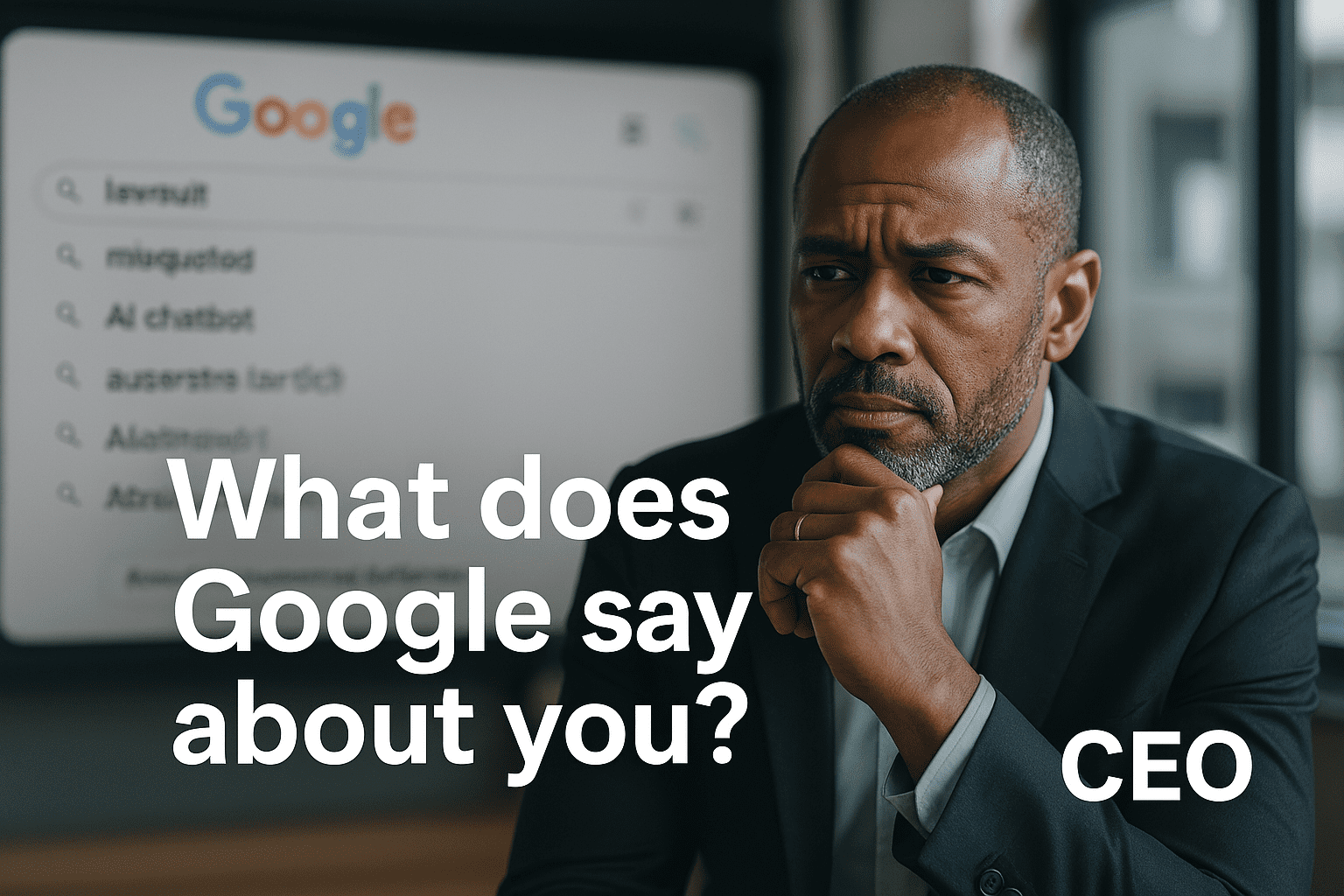Last Updated on November 13, 2024 by Steven W. Giovinco
What would a Trump presidency mean for your online reputation?
While politics and business intertwine, the goal here is to focus on the possible implications for businesses, individuals, brands, and nonprofits, as well as some solutions. At a high level, there will be a need to navigate heightened polarization, evolving digital platforms, and rapid policy changes.
Potential Reputation Issues with Trump Presidency
1. Polarization and Reputation Shifts
A Trump administration would likely magnify polarization, both online and offline. Public figures, businesses, and individuals would need to adapt to an environment where even taking a stance or avoiding certain topics could lead to quick reputation damage. While some might benefit from aligning with the administration’s supporters, others could face increased reputational risk if their views diverge from popular sentiments.
2. The Influence of X/Twitter
One of the most significant changes will be the increased presence of Elon Musk and X. Under his leadership, X (formerly Twitter) has become a platform with minimal moderation, fostering the rapid spread of both verified and unverified information. The platform’s growing role in political and social discourse could expand further under a Trump presidency. Given that X posts often rank at the top of Google search results, its influence on reputation protection is substantial and likely to increase.
3. The Role of AI Tools and Grok
Musk’s chatbot AI tool, Grok, which gathers realtime information from X, presents another layer of risk for reputations. Like other AI tools, Grok is capable of generating incorrect or misleading answers (often referred to as “hallucinations“). The administration’s push for deregulation could accelerate the development and use of such AI tools, potentially integrating them into government operations in novel ways–perhaps with Grok with an edge. While this could create efficiencies, it also poses significant risks for the rapid spread of misinformation, requiring reputation teams to stay vigilant and adapt quickly.
4. Uneven Reputation Gains Across Industries
Industries aligning with the administration’s policies might experience reputational boosts, gaining support from like-minded consumers and partners. However, companies and organizations with opposing stances, especially nonprofits focused on social justice or environmental causes, could face heightened scrutiny and online criticism. This demands robust web reputation strategies to counter potential negative exposure and maintain public trust.
5. Musk Is a Wildcard
As mentioned above, there could be many ways Musk might be integrated into the administration, ranging from tech policies to influence over platform X (but will this last?). His potentially close relationship with the administration could lead to unpredictable shifts in platform policy, adding another layer of complexity for maintaining your web presence.
6. Potential Breakup of Google and Shifts in Online Search
Efforts to curb the influence of Big Tech, such as a potential breakup of Google, could significantly impact how search engines function. Such a shift would alter SEO practices and force web presence management strategies to diversify across a more fragmented digital landscape. Smaller, niche search engines could rise in popularity as a result, requiring businesses to quickly adapt their reputation strategies to maintain visibility across varied platforms.
7. The Rise of AI Without Regulation
Deregulation could lead to unchecked AI advancements, increasing the prevalence of deepfakes, AI hallucinations, and biased outputs. This would exacerbate the challenge of managing public perception and controlling narratives, as AI-generated misinformation can spread rapidly. Real-time monitoring and rapid response strategies would become crucial to mitigate the fallout from viral false narratives and counter the influence of AI-powered bots spreading misinformation.
8. The Impact of Doppelgängers and Shared Names
With a potential increase in online conflict and misinformation, individuals who share names with public figures or those involved in controversies may face unintended reputational damage. ORM strategies would need to include measures to protect these individuals from mistaken identity issues and the fallout from AI-generated content or viral news.
9. Navigating Uncertainty
New administrations always bring policy shifts, but with Trump, these changes could be dramatic, creating an unprecedented level of dynamism. Be prepared for sudden policy changes and rapidly evolving laws, necessitating a high degree of flexibility and responsiveness.
9 Solutions for Effective Online Reputation Management
1. Build a Strong Reputation Now
Establishing a solid, neutral online reputation is essential to weather potential challenges. Be proactive by:
- Create/Update Your Personal Site: Buy a domain for your name, if you don’t already have one, and build a robust website. It could focus on your professional background, hobbies, or interests. These sites usually appear at the top of search results and are essential.
- Engage on Major Platforms: Be active on LinkedIn, Instagram, Facebook, Reddit, Pinterest, Medium, and professional forums.
- Develop Consistent, High-Quality Content: Regularly update blogs or publish thought leadership articles to showcase your expertise and authority.
2. Think About X/Twitter
Review X. One thing to consider is to maintain a presence on X to strengthen your online image, address potential reputation damage directly, and engage with audiences in real time.
Note: You may or may not agree with X and its approach, but its role in online reputation management is significant at the moment. However, on the other hand, having an active account could actually lead to reputation damage.
3. Post Comments and Content Carefully
In an environment where everything is scrutinized, be extra cautious:
- Think Before Posting: Pause and consider the implications before posting inflammatory comments, articles, or endorsements—no matter how true they may seem.
- Stay Neutral: Avoid sensitive topics; don’t “flame” or criticize others without valid reasons. Remember that X and Reddit posts are indexed quickly, appearing in search results overnight.
4. Monitor Search Results
- Use Google Alerts: Set up alerts for your name, business, and related topics to track mentions and sentiment in real time.
- Conduct Regular Name Searches: Periodically search for your name on search engines, social media sites, and AI platforms to catch and respond to issues. (Some tracking tools can miss things.)
- Plan for Issues: Have adaptable strategies ready to respond to sudden changes in public sentiment and misinformation.
5. Adapt to Platform Changes
With potential shifts in Big Tech, internet reputation strategy strategies need to be flexible:
- Diversify Platform Presence: Stay aware of platforms like Threads, Bluesky, and TruthSocial, and be prepared to adapt as needed.
- Engage on Multiple Search Engines: Extend web reputation defense strategies to include Bing, DuckDuckGo, and smaller niche search engines for broader coverage.
6. AI Online Reputation Management
Generative AI can be both a challenge and a tool:
- Adopt Generative AI Reputation Management: Use this emerging field to counteract negative online reputations on platforms like ChatGPT and Gemini, which can bypass traditional search engines.
- Utilize AI Tools for Analysis: Employ AI-driven tools for content creation, topic generation, and sentiment analysis.
7. Address Unforeseen Online Reputation Issues
Implement ways to protect yourself from mistaken identity:
- Doppelgänger Awareness: Be mindful of shared names with public figures or those at risk of mistaken identity. If a reputation issue appears, follow above steps with a focus on number 1.
- Create Personal Risk Mitigation: Verify yourself on platforms, even if it requires additional payment.
8. Be Nimble with Platform Changes
Prepare for potential changes in search engine operations due to shifts in Big Tech:
- Monitor Changes: Stay alert to new reputation strategies as search platforms diversify.
- Pivot Quickly: Be ready to quickly shift reputation strategies.
9. Engage and Promote Public Awareness
- Check and Learn: Always check trusted news, tech and government sites for changes.
- Collaborate with Influencers: Partner with trusted voices to spread accurate information and counter false narratives.
Bottom Line
A new Trump presidency would require more agile, informed, and proactive online reputation management practices. From adapting to power shifts on platforms like X and handling unregulated AI tools to managing industry-specific reputational challenges, online reputation management professionals need real-time monitoring, strategic engagement, and comprehensive crisis management plans. Leveraging technology, fostering community connections, and promoting transparent communication will be essential for navigating this complex landscape while safeguarding reputations.




